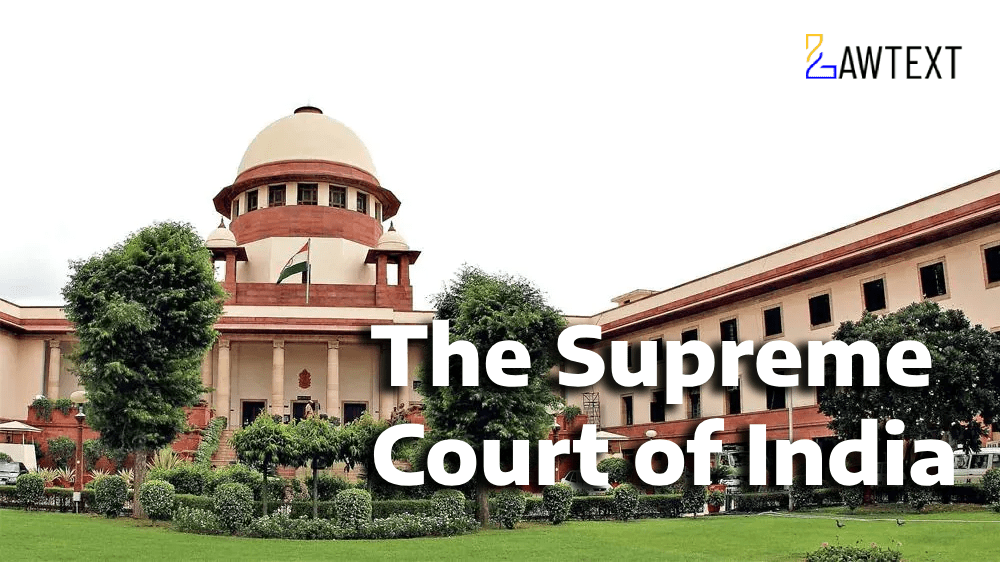Interpretation of "Change in Law" in Mega Power Policy. Defining the implications of policy modifications for Mega Power Projects under competitive bidding framework.

CASE NOTE & SUMMARY
The Supreme Court examined whether a press release from October 1, 2009, announcing modifications to the Mega Power Policy, constituted a "change in law" under the Power Purchase Agreement (PPA) between Nabha Power and Punjab State Power Corporation Limited (PSPCL). The Court held that the legal effect occurred only with the issuance of a customs notification on December 11, 2009, and a revised policy document on December 14, 2009. Therefore, the press release did not itself create a binding "change in law."
Acts and Sections Discussed
- Customs Act, 1962 - Section 25 (Power to exempt goods from customs duty)
- Electricity Act, 2003 - Relevant sections on tariff determination and distribution reforms
- General Clauses Act, 1897 - Section 21 (Power to amend or repeal notifications)
Ratio Decidendi:
- Change in Law Interpretation: The press release of October 1, 2009, was not deemed an enforceable change in law. The Court ruled that a formal notification or policy document is required to affect legal change under the PPA terms.
- Legality of Customs Notifications: The customs exemption required adherence to Section 25 of the Customs Act, necessitating an official gazette notification for changes in tax liability.
-
Background (Para 1-5)
- The appeal concerns the APTEL judgment upholding the Punjab State Electricity Regulatory Commission's decision that the Mega Power Policy change was effective only with the December notifications, not with the October press release.
-
Notification for Customs Duty Exemption (Para 2)
- The customs notification from 2002 provided exemptions for mega power projects, conditional upon specific qualifications such as inter-state distribution requirements and capacity criteria.
-
Policy Change via Press Release (Para 7-10)
- On October 1, 2009, the Indian government issued a press release modifying the Mega Power Policy, including changes to the distribution reform requirements for mega power projects. However, PSPCL contended that this press release did not create enforceable obligations or rights under the customs and power policies.
-
Cabinet Decision and Press Release (Para 13)
- A press release is only indicative of a future government policy shift, not a legal instrument. The actual "change in law" was enacted through the subsequent formal notifications in December 2009.
-
Impact of December Notifications (Para 15-17)
- The formal notifications modified the customs duties applicable and finalized the terms under which mega power projects could claim benefits, aligning with Section 25 of the Customs Act. These notifications were considered constitutive of a "change in law" under the PPA.
-
Supreme Court Ruling (Para 38-46)
- The Court ruled that PSPCL’s obligation to recognize any "change in law" benefits commenced with the December 2009 notifications. The initial October press release did not satisfy the PPA’s requirements for enforceability.
Conclusion
The Court emphasized the necessity of formal notification to effectuate "change in law" in contractual agreements involving regulatory and fiscal changes. This case reinforces the role of statutory notifications over government announcements in altering legal or contractual terms.
Subjects:
- Mega Power Policy
- Change in Law
- Power Purchase Agreement
- Tariff Regulations
- Distribution Reforms
ISSUE OF CONSIDERATION
NABHA POWER LIMITED & ANR. Versus PUNJAB STATE POWER COROPORATION LIMITED & ANR.
Citation: 2024 LawText (SC) (11) 54
Case Number: CIVIL APPEAL NO. 8478 OF 2014
Date of Decision: 2024-11-05
Case Title: NABHA POWER LIMITED & ANR. Versus PUNJAB STATE POWER COROPORATION LIMITED & ANR.
Before Judge: (B.R. Gavai J. , Prashant Kumar Mishra J. , K.V. Viswanathan J.)
Appellant: NABHA POWER LIMITED & ANR.
Respondent: PUNJAB STATE POWER COROPORATION LIMITED & ANR.

